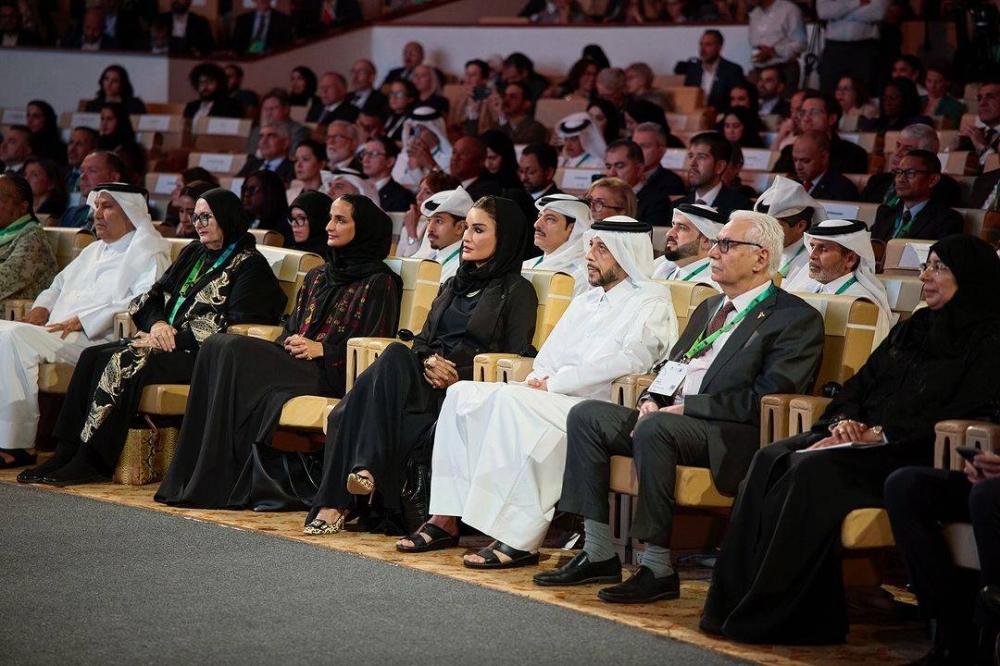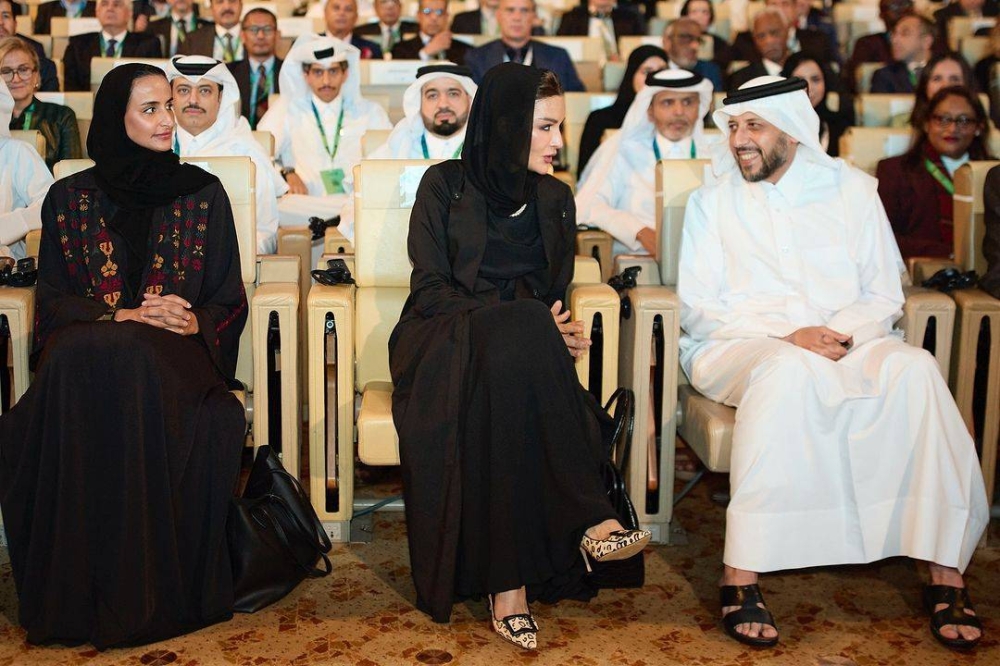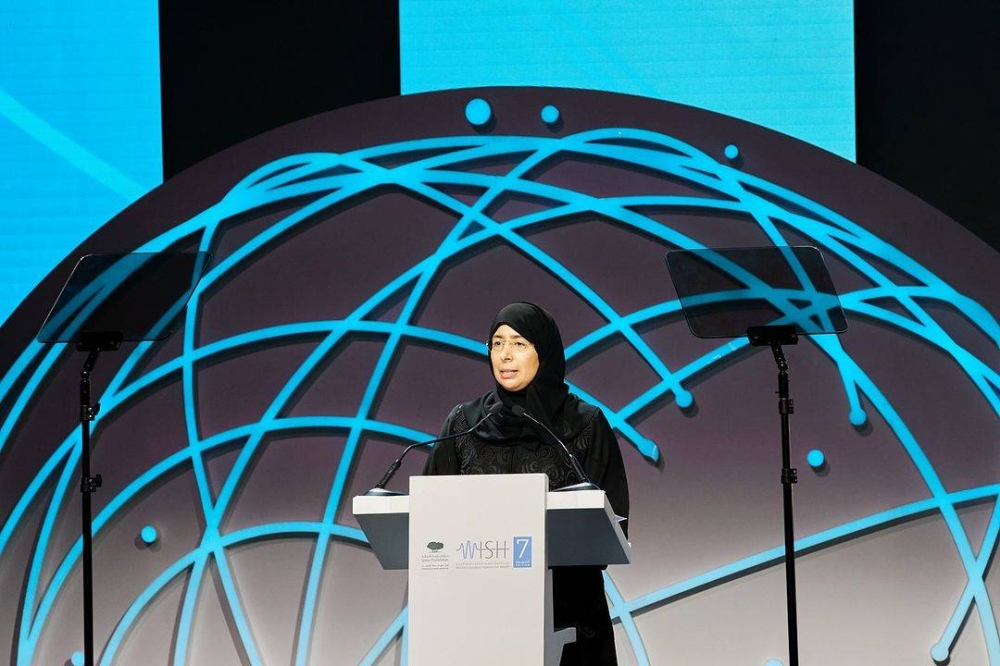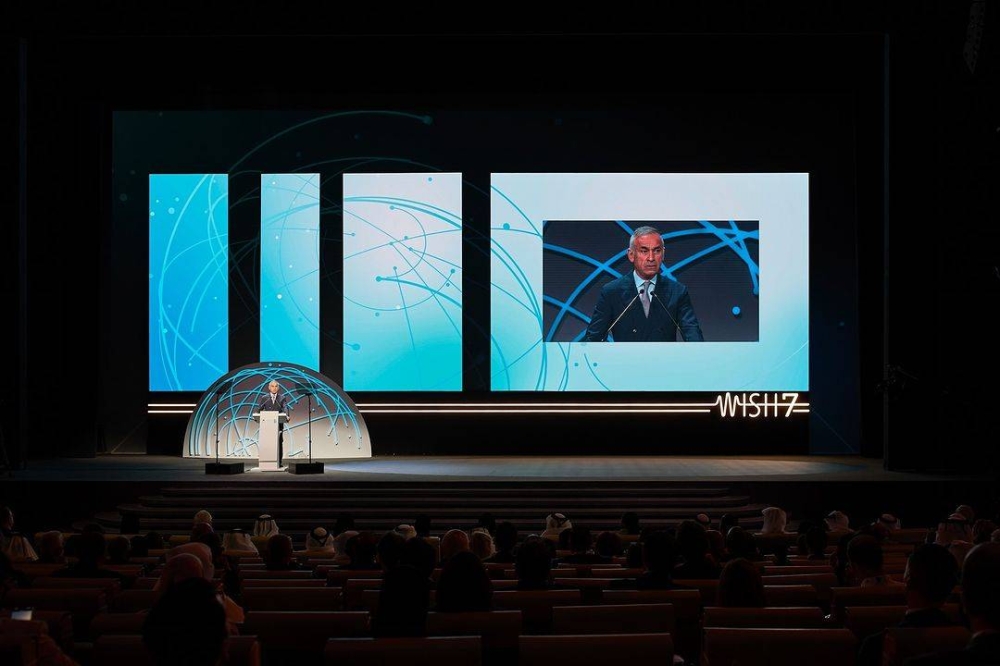Focusing on various challenges and the need for innovations in healthcare and with deliberations on some of the key current healthcare topics, the 7th edition of the biennial World Innovation Summit for Health (WISH) started Wednesday in the presence of Her Highness Sheikha Moza bint Nasser, Chairperson of Qatar Foundation (QF).
WISH, the global healthcare initiative of QF, is held under the theme, ‘Humanising Health: Conflict, Equity, and Resilience’ this year. The two-day summit is being attended by a number of luminaries and delegates from around the world.
Present at the opening ceremony were QF Vice Chairperson and CEO HE Sheikha Hind bint Hamad al-Thani, HE the Minister of Public Health Mansoor bin Ebrahim bin Saad al-Mahmoud, the former Minister of Public Health HE Dr Hanan Mohamed al-Kuwari, WISH executive chair Lord Darzi of Denham, and Médecins Sans Frontières president Dr Christos Christou, among other dignitaries.
Speaking at the opening session, HE Dr al-Kuwari, said: “Under the visionary leadership of Her Highness Sheikha Moza bint Nasser, WISH continues to expand as a global community committed to making healthcare accessible and humane.
“At WISH, we strive to present the world’s most cutting-edge ideas and scientific advancements. But we also focus on confronting the urgent challenges before us, particularly given that Qatar holds a firm belief in our shared responsibility to foster understanding, drive progress, and uphold the spirit of global cooperation.”
The summit underscores the need for health innovation that supports everyone, leaves no one behind, and builds resilience, particularly for vulnerable communities and in regions affected by armed conflict.
Lord Darzi highlighted the challenges faced by those working to provide care during armed conflict. He said: “War is a healthcare catastrophe. There can never be any justification for targeting healthcare personnel or infrastructure – it is purely and simply wrong. We must stand together to condemn such actions and honour those who courageously continue to provide care in the most appalling conditions.”
Reflecting on the summit theme of conflict, equity, and resilience, Dr Christou said he was gravely concerned that attacks on healthcare facilities and workers have become the “new norm”.
“We need to know that there is a place that is respected, and that place is a hospital. We are scrambling without basic medicines, anaesthetics or antibiotics. There are many doctors in Gaza who are amputating on children without anaesthetic, for example,” Dr Christou said.
When asked about the neutrality of Médecins Sans Frontières, he reiterated that the values of the organisation remain consistent, and they treat all in need, but doctors “have a mandate to bear witness, to be a voice of the voiceless.... Neutrality means many things, but it does not mean silence.”
A film shown during the opening ceremony told the story of 11-year-old Dareen al-Bayaa, a Palestinian girl who lost 47 members of her extended family as a result of a devastating attack on her home in Gaza, with only Dareen and her five-year-old brother surviving and being taken to Doha for medical treatment. “Why is it OK for me to suffer? Is this fair?” asked Dareen in the film.
Ahead of the summit, WISH entered into a strategic partnership with the World Health Organisation (WHO), collaborating on the development of a series of evidence-based reports and policy papers, as well as working with the United Nations’ health agency to develop a post-summit implementation strategy.
The summit has brought together more than 200 experts in health to discuss evidence-based ideas and practices in healthcare innovation with the aim of addressing the world’s most urgent global health challenges.
Day one of the summit hosted discussion forums based on reports published by WISH and the WHO, alongside roundtable discussions and open sessions.
The opening session was followed by a discussion based on the joint WISH and WHO 2024 report titled ‘In the line of fire: Protecting health in armed conflict’, chaired by Richard Brennan, the regional emergency director of the Eastern Mediterranean Regional Office of the WHO. He was joined by expert speakers including Yousuf al-Khater, president of Qatar Red Crescent Society; and Sigrid Kaag, the United Nations’ Senior Humanitarian and Reconstruction Coordinator for Gaza.





